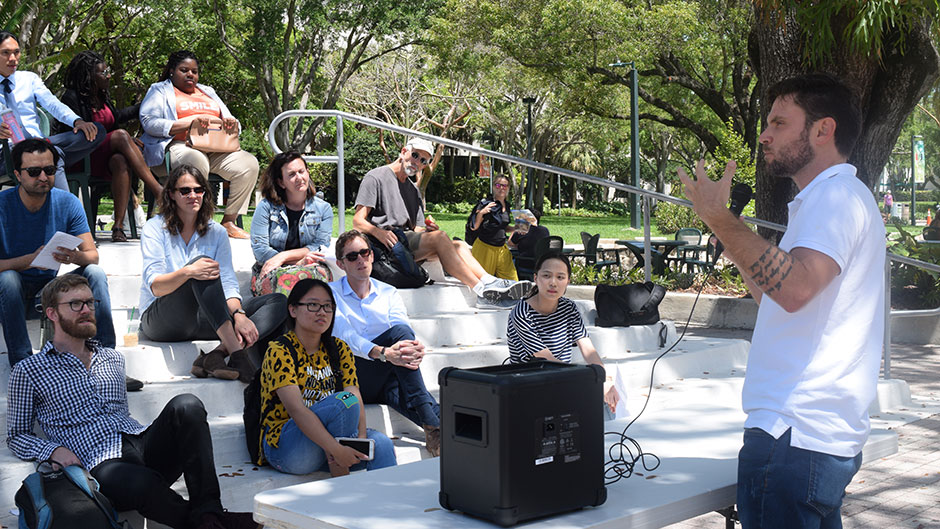“I will miss you Miami, all aspects of you, but I do not resign myself to believe that I cannot save you.”
These are the sentiments one University of Miami student shared into a microphone Thursday afternoon at the Rock Plaza during Before It Sinks Into the Sea: Micro-Eulogies for Miami.
The event—hosted by the UM English Department in partnership with Sinking City; The University Employee Alliance; O, Miami Poetry Festival; and One Book, One U—brought students, faculty, and members of the community together to reflect on what they love about our city, one that climate science predicts might be under water before the turn of the century.
As the editor of Sinking City, the literary magazine published semi-annually by Creative Writing graduate students, Mario Ariza puts significant effort into thinking of ways art can be used to address social and political issues. Considering how upsetting the topic of climate change can be, Ariza organized the micro-eulogies format as a way to “put grief to good use.”
Participants were invited to write on postcards why they cared about Miami to “save a memory of something that’s going to be lost” and recite them in an open-mic setting. Some were funny, others nostalgic, and others still deeply emotional and saddening. Freshman Zoe Stephan shared a memory of a fierce storm that nearly flooded her neighborhood and what she’ll miss about the home she grew up in. School of Communication Professor and Creative Writing M.F.A. alumna Margaret Cardillo read the piece her 5-year-old daughter wrote about what she’ll miss, from the trees to the toys she left at her friend’s house.
Attendees reflected on everything from coral reefs’ loss of vibrancy to the impoverished population that will be hit the hardest by sea level rise. The micro-eulogy postcards written on campus will become part a waterproof book memorializing the city produced by O, Miami, a nonprofit organization that promotes poetry through creative events and projects.
Brenna Munro, associate professor in the English Department, appreciates how events like this show the capacity for literature to move and unite people of all interests—writers, activists, scientists, and concerned citizens. This is the third in a series of reflective literature activities the English Department has sponsored this year, one addressing countries affected by the travel ban and the other highlighting writing by immigrants.

